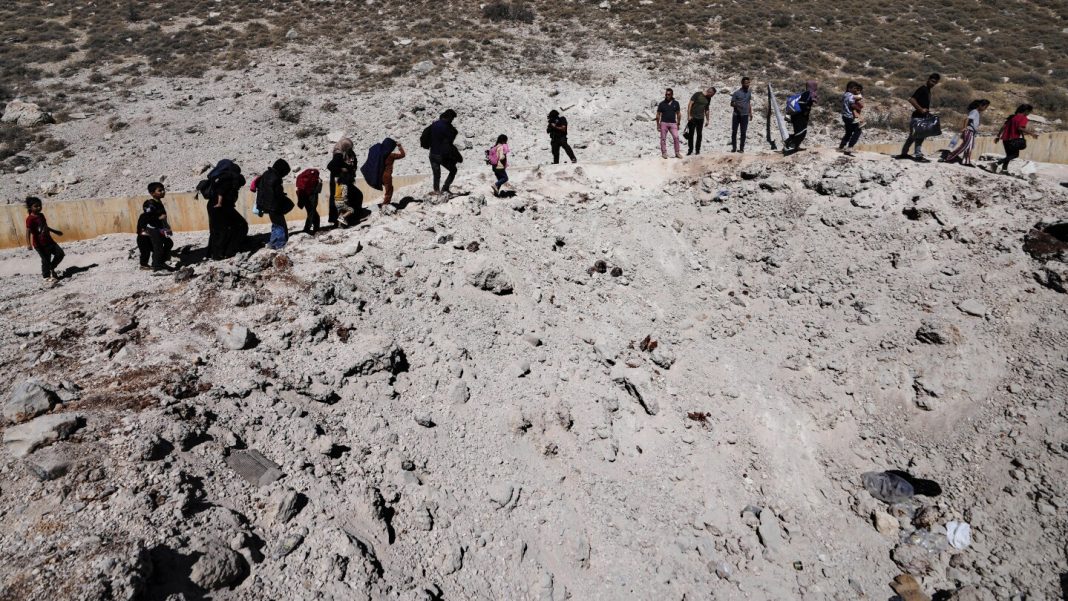BEIRUT (news agencies) — Hundreds of thousands of Syrian refugees have returned to their country since Israel launched a massive aerial bombardment on wide swathes of Lebanon in September. Many who fled to Lebanon after the war in Syria started in 2011 did not want to go back.
But for officials in Lebanon, the influx of returnees comes as a silver lining to the war between Israel and Hezbollah that has killed more than 3,000 people and displaced some 1.2 million in Lebanon. Some in Syria hope the returning refugees could lead to more international assistance and relief from western sanctions.
Nisreen al-Abed returned to her northwest Syrian hometown in October after 12 years as a refugee in Lebanon’s Bekaa Valley. The airstrikes had been terrifying, but what really worried her was that her 8-year-old twin daughters need regular transfusions to treat a rare blood disorder, thalassemia.
“I was afraid that in Lebanon, in this situation, I wouldn’t be able to get blood for them,” al-Abed said.
During their dayslong journey, Al-Abed and her daughters were smuggled from government-held to opposition-held territory before reaching her parent’ house. Her husband remained in Lebanon.
“Before these events, I wasn’t thinking at all about returning to Syria,” she said.
According to the U.N. refugee agency, more than 470,000 people — around 70% of them Syrian — have crossed the border since the escalation in Lebanon began in mid-September. Lebanon’s General Security agency estimates more than 550,000 people have fled, most of them Syrian.
Most of the returnees are in government-controlled areas of Syria, according to UNHCR, while tens of thousands have made their way to the Kurdish-controlled northeast and smaller numbers to the opposition-controlled northwest.
Political leaders in Lebanon, which was hosting an estimated 1.5 million Syrian refugees before the recent wave of returns, have been calling for years for the displaced to go home, and many don’t want the refugees to return.
Lebanon’s caretaker Minister of Social Affairs Hector Hajjar told Russia’s Sputnik News last month that the war in Lebanon could yield “a positive benefit, an opportunity to return a large number of displaced Syrians to their country, because the situation there is now better than here.”
Officials in Damascus point to increasing economic pressure from the masses fleeing Lebanon as an argument for loosening western sanctions on President Bashar Assad’s government.
Syria was already suffering from spiraling inflation, and the sudden influx of refugees has driven prices up even more, as have Israeli strikes on border crossings that have slowed legal cross-border trade and smuggling.
“Everyone knows that Syria is suffering from difficult economic conditions: hyperinflation, import inflation, and an economic blockade,” said Abdul-Qader Azzouz, an economic analyst and professor at Damascus University. The influx of refugees just “increases the economic burden,” he said.
Alaa al-Sheikh, a member of the executive bureau in Damascus province, urged the U.S. to lift sanctions on Syria because of the huge number of arrivals.
“The burden is big and we are in pressing need of international assistance,” she said.



